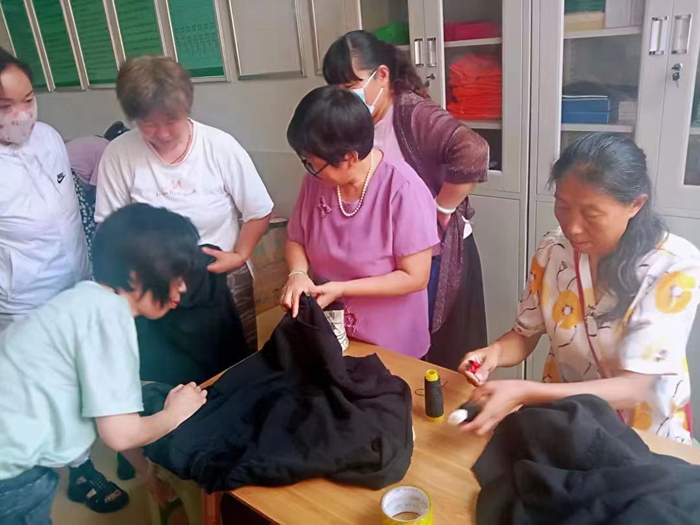Temporary employment services support local livelihoods

A teacher teaches women the technique of hand knitting. [Photo by Zhang Minmin for chinadaily.com.cn]
Zhucheng city in Shandong province has set up three temporary work hostels in areas with high labor demand, like Zhigou town, to broaden the scope of temporary employment services. These hostels provide "one-stop" employment services, including vocational introduction, employment guidance, information release, and rights protection.
The city has also launched multiple online platforms, such as the website and WeChat official account, which uses big data collection, analysis, and application to achieve immediate and accurate matching between workers and jobs, addressing the flexible employment needs of businesses and temporary workers.

Women practice hand knitting under the guidance of their teacher. [Photo by Zhang Minmin for chinadaily.com.cn]
Since its integration, the platform has drawn in over 900 companies online, offering more than 5,000 job positions and attracting 8,100 visits from job seekers. It facilitates communication through more than 20 WeChat groups dedicated to temporary worker job hunting and training.
Since the beginning of this year, in order to help the zero-labor group improve their employment skills, Zhucheng city has focused on zero-labor employment skills, providing free skill training in various fields.
At the same time, the platform offers professional instructors to assist trainees in achieving skill-level certification. To date, it has conducted more than 20 professional training sessions such as child care, elderly care, and psychological training for older female workers, benefiting more than 900 participants.
In addition, Zhucheng city also ensures the employment of the part-time worker groups. It has established a good relationship with more than 700 enterprises in the city. Weekly regular job fairs are held every Thursday, where more than 50 companies offer immediate, accurate, and efficient on-site recruitment for the part-time worker groups. (Edited by Huang Junyao)








